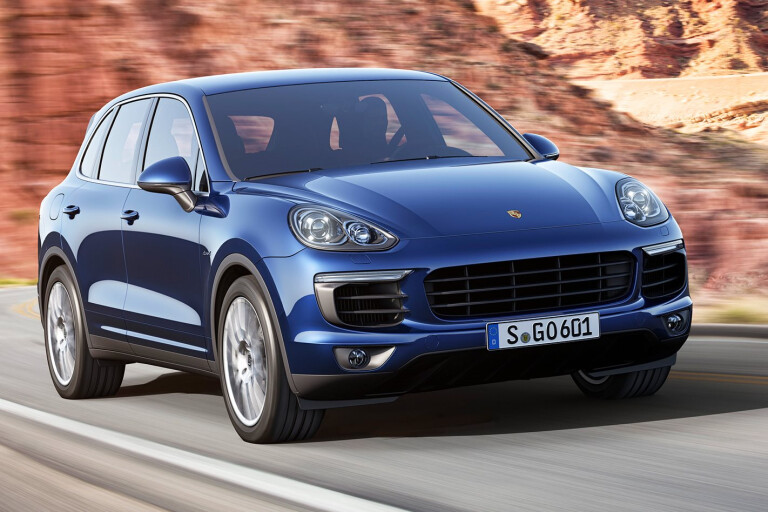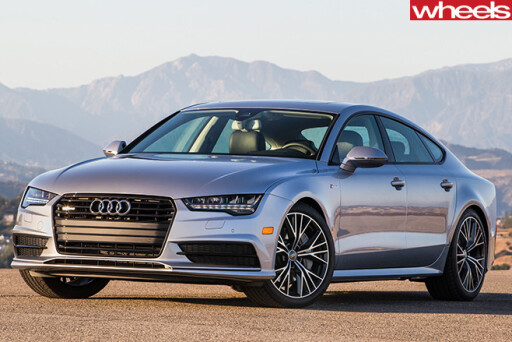
PORSCHE – one of the world’s most recognised and valuable automotive brands – has been accused of cheating on its emissions tests as the growing Volkswagen Group scandal scoops up more high-profile brands.
The US Environmental Protection Authority overnight issued a second notice of violation to Volkswagen Group for an alleged breach of the Clean Air Act, this time targeting the 3.0-litre V6 diesel engine used in the 2015 Porsche Cayenne, the 2014 Volkswagen Touareg, and the 2016 Audi A6, A7, A8 and Q5.
The newly launched Audi Q7 also uses a 3.0-litre V6 diesel engine, although it has not been named as part of the recall. It is unclear if the Q7’s engine is related to the ones scooped up by the EPA’s action.
“Today, EPA is issuing a second notice of violation (NOV) of the Clean Air Act (CAA) to Volkswagen AG, Audi AG and Volkswagen Group of America, Inc,” the environmental group said in a statement.
“This NOV is also being issued to Porsche AG and Porsche Cars North America,” it said.
“The NOV alleges that VW developed and installed a defeat device in certain VW, Audi and Porsche light duty diesel vehicles equipped with 3.0-litre engines for model years 2014 through 2016 that increases emissions of nitrogen oxide (NOx) up to nine times EPA’s standard.”
According to the EPA, the second notice covers an “unknown” number of vehicles.
Porsche Cars North America issued a brief statement in response to the EPA’s action.
“We are surprised to learn this information,” it said. “Until this notice, all of our information was that the Porsche Cayenne Diesel is fully compliant.”
 Wheels has approached both Audi Australia, which has already recalled vehicles using a 2.0-litre diesel engine here, and Porsche Cars Australia for comment, with both yet to respond. The current Australian recall also affects Skoda- and Volkswagen-badged passenger cars and commercial vehicles.
Wheels has approached both Audi Australia, which has already recalled vehicles using a 2.0-litre diesel engine here, and Porsche Cars Australia for comment, with both yet to respond. The current Australian recall also affects Skoda- and Volkswagen-badged passenger cars and commercial vehicles.
“[Volkswagen Group] has once again failed its obligation to comply with the law that protects clean air for all Americans,” said Cynthia Giles, the EPA’s assistant administrator for enforcement and compliance assurance.
“All companies should be playing by the same rules. EPA, with our state, and federal partners, will continue to investigate these serious matters, to secure the benefits of the Clean Air Act, ensure a level playing field for responsible businesses, and to ensure consumers get the environmental performance they expect.”
The second breach of the Clean Air Act follows the EPA’s investigation of the emissions ratings for more vehicles in the Volkswagen Group stable. The EPA also placed other car brands on notice that they, too, would come under close scrutiny to ensure they complied with the Act.
The latest notice reads:
As alleged in the NOV, VW manufactured and installed software in the electronic control module of these vehicles that senses when the vehicle is being tested for compliance with EPA emissions standards. When the vehicle senses that it is undergoing a federal emissions test procedure, it operates in a low NOx “temperature conditioning” mode. Under that mode, the vehicle meets emission standards. At exactly one second after the completion of the initial phases of the standard test procedure, the vehicle immediately changes a number of operating parameters that increase NOx emissions and indicates in the software that it is transitioning to “normal mode,” where emissions of NOx increase up to nine times the EPA standard, depending on the vehicle and type of driving conditions. In other tests where the vehicle does not experience driving conditions similar to the start of the federal test procedure, the emissions are higher from the start, consistent with “normal mode.”
VW's software on these vehicles includes one or more Auxiliary Emission Control Devices (AECD) that the company failed to disclose, describe and justify in their applications for certificate of conformity for each model. Every manufacturer must apply to EPA for and be approved for a certificate of conformity for each model, each year otherwise it is illegal to introduce the cars into commerce. An AECD designed to circumvent emissions test is a defeat device.
The Clean Air Act requires vehicle manufacturers to certify to EPA that their products will meet applicable federal emission standards to control air pollution, and every vehicle sold in the U.S. must be covered by an EPA-issued certificate of conformity. The Clean Air Act also prohibits manufacturers’ making and selling vehicles equipped with defeat devices that reduce the effectiveness of the emission control system during normal driving conditions. By making and selling vehicles with defeat devices and by selling vehicles with higher levels of air emissions than were certified to EPA, Volkswagen allegedly violated two important provisions of the Clean Air Act.
NOx pollution contributes to harmful ground-level ozone and fine particulate matter. Exposure to these pollutants has been linked with a range of serious health effects, including increased asthma attacks and other respiratory illnesses. Exposure to ozone and particulate matter has also been associated with premature death due to respiratory-related or cardiovascular-related effects. Children, the elderly, and people with pre-existing respiratory disease are particularly at risk of health effects from exposure to these pollutants.
VW may be liable for civil penalties and injunctive relief for the violations alleged in the NOV. VW will have an opportunity to respond to the allegations contained in the NOV.
Affected diesel models include:
- 2014 VW Touareg
- 2015 Porsche Cayenne
- 2016 Audi A6 Quattro, A7 Quattro, A8, A8L, and Q5

COMMENTS